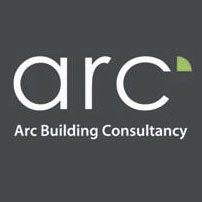New Energy Regulations: How to Improve Your EPC Rating
As new regulations surrounding Energy Performance Certificates (EPCs) come into effect, landlords must understand how their properties are affected to avoid severe penalties.
Overall, the improvement of a property’s energy efficiency rating is always recommended in order to improve the conditions in which tenants live, as well as increase the value of the property itself. However, ensuring compliance with laws and regulations is of utmost importance.
With the intent to save energy and reduce carbon emissions, changes to regulations will come into force in 2028 to ensure all rental properties meet an EPC rating of ‘C’ or above.
The following guide provides insights for landlords regarding these changes as well as how to increase their EPC rating, ensuring compliance with the latest regulations while reaping the benefits of reduced energy consumption and increased tenant satisfaction.
How have the rules been updated?
An EPC rates a property’s energy efficiency from A to G, with G being the lowest rating possible.
Currently, the government’s Minimum Energy Efficiency Standards (MEES) states that private rented properties in England and Wales are required to have an EPC rating of E or above.
The Minimum Energy Performance Bill, which has only been past its second reading in parliament and is still in the process of becoming law, has set out what the future holds for minimum EPC requirements.
Initially, it had proposed that existing tenancies meet a minimum EPC rating of C, while new tenancies were required to meet this by December 31, 2028.
However, the most recent reading of the Bill has pushed back the date initially set to allow extra time for landlords to reach the proposed goal. Both new and existing tenancies are now intended to meet the 2028 deadline.
Taking advantage of the deadline’s pushback, it is important for landlords to ensure the new date established is respected by taking the right steps to improve their properties’ EPC ratings.
How can I improve my rating?
Improving a property’s energy efficiency rating can be achieved with some simple adjustments. However, leaving the required improvements to the last minute can be particularly detrimental.
Here are a few steps that can be taken by landlords to ensure the 2028 deadline is met:
- Better insulation
Improved insulation keeps houses warm in winter and cold in the summer. Insulating walls and roofs, as well as floors and lofts, can be a relatively unexpensive way to improve EPC ratings.
Ensuring your property’s internal and external insulation is at the highest standard will not only help tenants live in a better built environment, but it will also allow for less extra energy to be consumed.
Further, adding an insulating jacket to your hot water tank is another step in the right direction, with data showing that the financial benefits become substantial as years go by.
- Improved heating and cooling systems
Old appliances such as faulty air conditioners or heaters can waste an enormous amount of energy.
Using updated heating and cooling systems at properties with low energy ratings is another way to help improve their energy efficiency, as newer technologies are optimised to reduce energy waste.
- Energy-efficient lighting
Traditional and halogen light bulbs consume more energy than LED bulbs. Upgrading your light bulbs can make a significant difference in reducing energy consumption, as well as reduce the price of bills.
- Replacing single glazed windows
Upgrading to double glazed windows forms a vital part of improving your home’s insulation and energy efficiency. Single glazed windows can make homes feel cold as well as contributing to increasing your energy bills, making them, overall, not a viable option in the long term.
- Renewable energy sources
Another effective way to improve a property’s EPC rating is the use of renewable sources of energy throughout the house.
Though these require an initial investment, this is worth it in the long term, as using sustainable energy sources such as solar panels will ensure your property uses energy more efficiently as well as reduces carbon emissions.
How can we help?
Here at Arc Building Consultancy, our team of chartered building surveyors possesses expertise in all sectors of the industry, and can offer guidance on any other questions you may have regarding the new EPC regulations coming in place and beyond.
To learn more about how we can deliver benefits to landlords, building owners, tenants and buyers, simply get in touch with our team.


